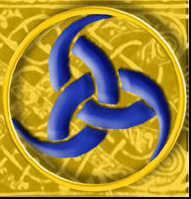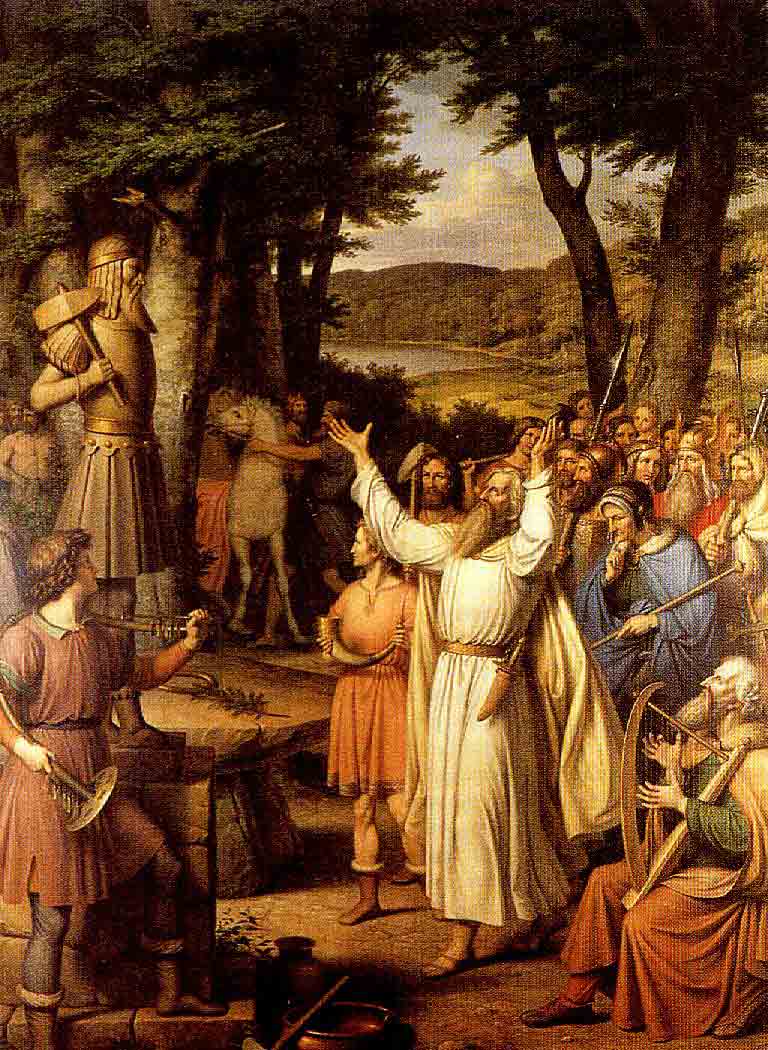
Terms of
Use
Submissions
~ Historical & Classical Poetry ~
Vellekla
Hakon the earl, so good and wise,
Let all the ancient temples rise; --
Thor's temples raised with fostering hand
That had been ruined through the land.His valiant champions, who were slain
On battle-fields across the main,
To Thor, the thunder-god, may tell
How for the gods all turns out well.The hardy warrior now once more
Offers the sacrifice of gore;
The shield-bearer in Loke's game
Invokes once more great Odin's name.The green earth gladly yields her store,
As she was wont in days of yore,
Since the brave breaker of the spears
The holy shrines again uprears.The earl has conquered with strong hand
All that lies north of Viken land:
In battle storm, and iron rain
Hakon spreads wide his sword's domain.
Einar Skålaglam, Icelandic skald , ca. 986
translation by Rune Bjørnsen, used with his permission
Image: "Offerscene" by J. L. Lund
Notes: (info by courtesy of Rune Bjørnsen)
Vellekla was created by the Icelandic skald Einar Skålaglam, in honor of Hakon Earl of Lade. The Icelandic author Finnur Jónsson dates it to the year 986, after the battle of Hjørungavåg. This is only a small portion of the original, which has 37 stanzas.
The Icelandic, Danish and Norwegian versions can be found here: http://lind.no/kark/noter/vellekla.html
Vellekla is kind of special since it has two endings. The first ending happens in stanza 33 (the skald is thanking the earl for his payment for the kvad). This gives reason to believe that it was created after Hakon Earl of Lade had defended Denmark against the Saxon Emperor in 976, and that the skald later added 4 stanzas.
Snorre Sturlasson renders parts of Vellekla in Heimskringla - The Chronicles of the Kings of Norway. You'll find it in the "Saga of King Harald Grafeld and of Earl Hakon Son of Sigurd". Here: http://sunsite.berkeley.edu/OMACL/Heimskringla/grafeld.html , but he is missing stanzas 13, 18, 19, 20, 21, 33, 34, 35, and 36.
